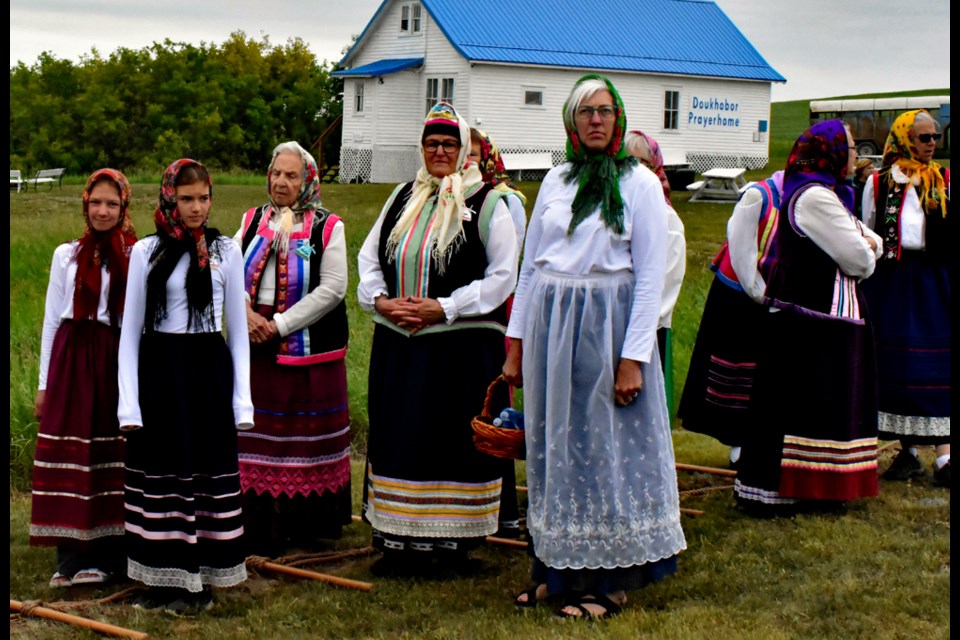BLAINE LAKE — The Blaine Lake valley, to the west side of the Saskatchewan River, has been a traditional hunting ground of the Muskeg Lake Cree Nation for hundreds of years, where they also gather plants that they use for medicine and trap animals for food, clothing and shelter.
It is also where about 300 Doukhobor people settled when they left Russia in 1899 and made homes in cave dugouts in the prairie hills. The 436-square-foot piece of land is now a historical site, the Doukhobor Dugout House.
It is the same site where the Muskeg Lake Cree people living on the nearby reserve had their first encounter with the Doukhobors when a group led by James Greyeyes ventured by the river to hunt, trap and gather supplies.
They saw the Doukhobor women breaking the land by pulling a plow themselves without the aid of a farm animal so they could plant crops while their men headed east to earn money working on the railroad as it made its way to the west.
Greyeyes told their community the story of what they had seen by the river, and they decided they had to do something, following their traditional teachings and values of kinship, love and kindness.
They ignored the threat of being arrested, for there were restrictions imposed on them by the government not to leave the reserve, and despite the language barrier, gave the women horses to help them pull the plow and work the farm.
That piece of history was re-enacted on Saturday as the Dugout House re-opened with representatives of Muskeg Lake Cree Nation and descendants of the original settlers who acted out what could have happened more than 100 years ago.
Harold Greyeyes, the great-grandson of James Greyeyes, rode a horse to reenact the meeting of the Muskeg Lake Cree people and the Doukhobors more than 100 years ago.
The Doukhobors were a Christian minority group in Russia that did not adhere to the Russian Orthodox Church and strictly followed their pacifist way of life by burning their arms and other weapons as a way to protest participation in the Russian military in 1895.




